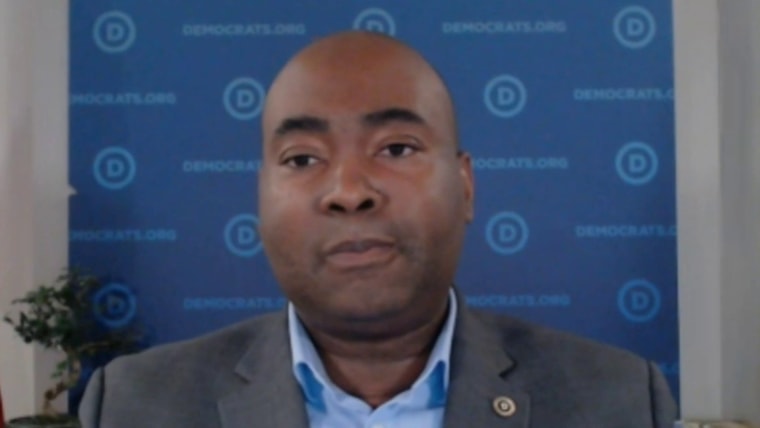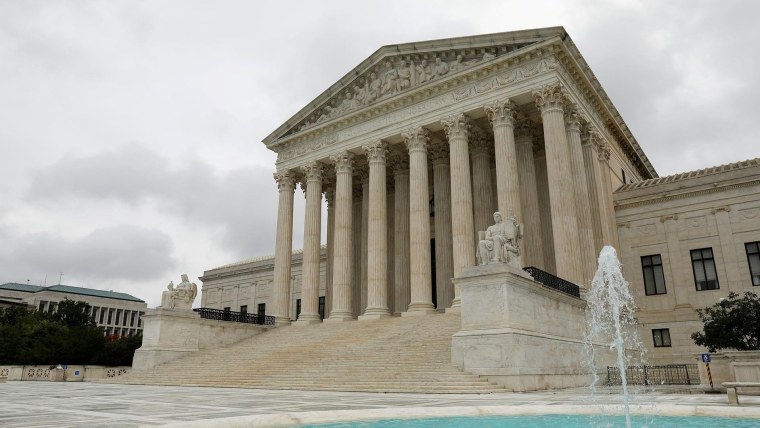At the exact moment when we need the Supreme Court to play its role in protecting the individual right to vote, a conservative 6-3 majority of the court has given two restrictive voting laws its blessing, signaling to states that just a little voter suppression is legally permissible.
The Supreme Court’s decision Thursday in Brnovich v. Democratic National Committee occurs at a precarious time in our nation’s history when it comes to the right to vote. More than a dozen states have already enacted 22 restrictive voting laws. There are 61 restrictive voting bills still pending in 18 states.
The court should more closely scrutinize laws that threaten people’s ability to exercise power in our political process or when those laws burden fundamental rights. Both of those situations are present in this particular case, yet the court essentially deferred to state legislative judgment.
The court should more closely scrutinize laws that threaten people’s ability to exercise power in our political process or when those laws burden fundamental rights.
The case involves two voting practices in Arizona, both of which the court should have concluded violate the federal Voting Rights Act. First, Arizona trashes ballots that are provisional, the ones cast in the wrong precincts on Election Day. Second, Arizona limits who can return early ballots on behalf of voters to family and household members, caregivers, mail carriers and election officials.
The Voting Rights Act should protect against these types of vote denials. Instead, the court has limited what little is left of the Voting Rights Act, a landmark piece of civil rights legislation enacted to guard against the disenfranchisement of African Americans. In 2013, the court eviscerated half of the act, which required certain states and localities with a history of voting discrimination to check in with the federal government prior to enacting changes to their voting laws or practices.
All that is left of the Voting Rights Act's once powerful enforcement mechanism now is Section 2, which creates a national prohibition against "voting practices or procedures that discriminate on the basis of race, color" or membership in a protected language minority group. Significantly, Section 2 puts the burdens on groups or individuals to show a violation of the act.
After oral arguments in the beginning of March, it looked likely that the court would, as it did on Thursday, uphold both of Arizona’s voting practices. The real question was how much the court would restrict the reach of Section 2 of the Voting Rights Act. The answer, as we learned Thursday, is: a great deal.

As Justice Elena Kagan argued in a powerful dissent, “What is tragic here is that the Court has (yet again) rewritten—in order to weaken—a statute that stands as a monument to America’s greatness, and protects against its basest impulses.” Kagan traced the history of voting rights in our country and the need for the Voting Rights Act. She then moved on to criticize the majority’s approach, which will make it much harder for those challenging restrictive voting laws to succeed. In what can best be described as a Supreme Court justice smackdown, Kagan described Justice Samuel Alito’s majority opinion as “mostly inhabit[ing] a law-free zone.”
Thursday’s decision means it’s even more urgent that Congress pass the For the People Act or the John Lewis Voting Rights Advancement Act or another piece of legislation affording renewed protections for voters. The court’s decision leaves room for Congress to clearly and forcefully set a floor of protection for voters throughout the county. This law would pre-empt contradictory state laws that seek to make it harder for eligible voters to vote.
But the adoption of nationwide legislation to safeguard voting rights appears increasingly unrealistic. The short-term solution is not going to come from the government. It will come from each one of us. Street by street, block by block, town by town, we need to reach out to our neighbors and help ensure that anyone who is eligible can exercise their right to vote. That should be the promise of a representative democracy. It is up to us to fulfill it.

